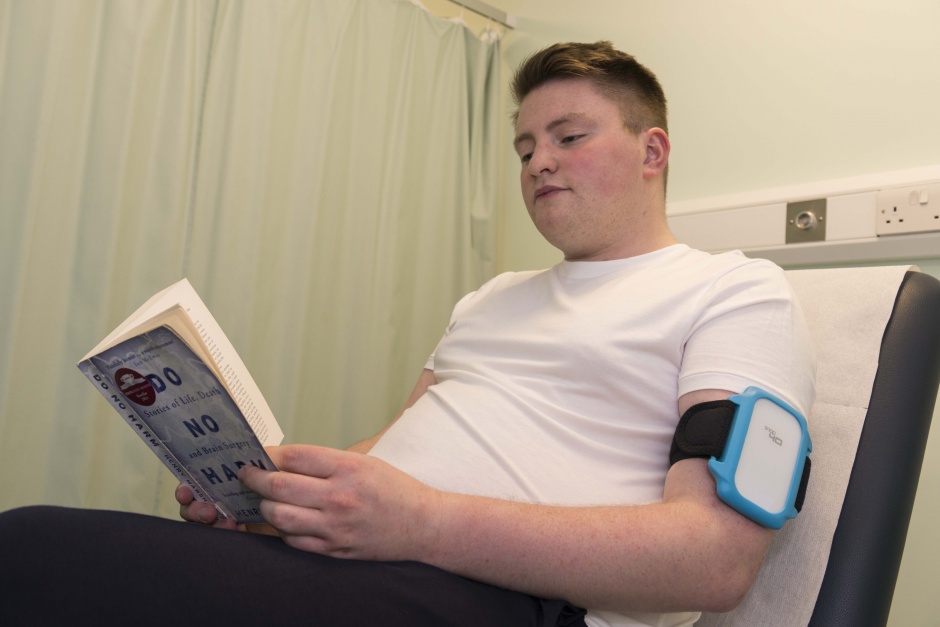
The funding, awarded through the Small Business Research Initiative for Healthcare (SBRI), will be used to scale the technology and provide critical validation funding for two clinical studies with NHS Fife and with NHS Lothian’s Emergency Medicine Research Group Edinburgh (EMERGE).
The company’s technology consists of a single medical wearable device, worn on the upper arm, that continuously monitors respiratory rate, heart rate, relative change in systolic blood pressure, oxygen saturations, skin temperature and movement.
Data gathered by the device is transmitted continuously to a predictive analytics software platform – underpinned by a set of proprietary machine learning and artificial intelligence algorithms - that analyses a user’s vital signs for changes and indication of risk. If the system determines that the wearer is in danger it will provide an alert to clinical staff.
snap40 CEO Christopher McCann said that the technology could help ease the burden on the UK’s beleaguered health service. “Access to doctors and nurses is at a premium. Our society simply cannot afford one-to-one care – snap40 changes that. It allows our world-class healthcare staff to care for many more patients by helping them to prioritise who needs attention most.”
Karen Livingstone, national director SBRI Healthcare, agreed that technologies like snap40 will become increasingly important in the future: “People are increasingly taking control of their own health, using tools to inform their behaviours and decisions,” she said. “Artificial intelligence technology is becoming more and more powerful, and will play an increasing role in healthcare over the coming years.”
The SBRI contract will enable the company to expand its engineering team, and help it move towards its goal of getting regulatory clearance in Europe and the US.





Poll: Should the UK’s railways be renationalised?
I think that a network inclusive of the vehicles on it would make sense. However it remains to be seen if there is any plan for it to be for the...